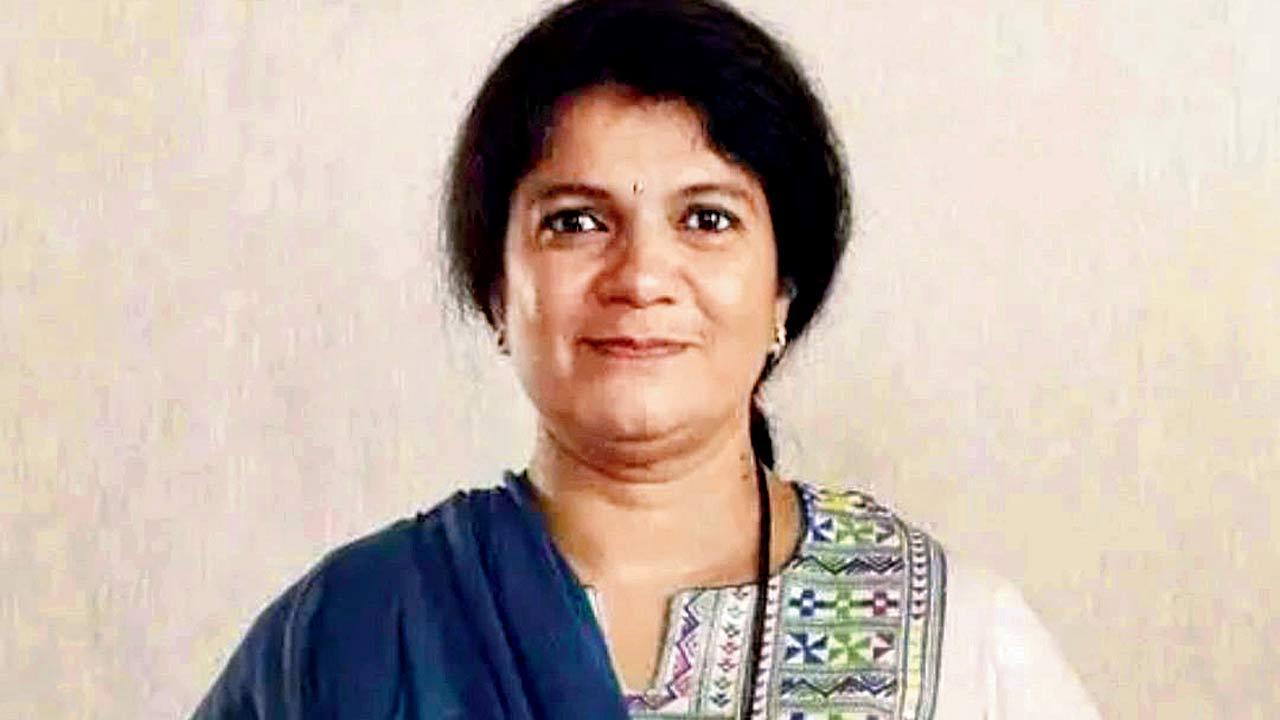Commission heard 35 cases on December 10, of which 10 turned out to be fake; complainants to be prosecuted

Advocate Susieben Shah
Of the 35 Protection of Children from Sexual Offences (POCSO) cases heard by the Maharashtra State Commission for Protection of Child Rights on Tuesday (December 10), 10 were found to be registered on false accusations made by the complainant, amounting to 29 per cent of the total cases. The commission is in the process of prosecuting those who made the false complaints.
ADVERTISEMENT
Speaking with mid-day, commission chairperson Adv. Susieben Shah disclosed that this is the case across the board and approximately 30 per cent of POCSO cases registered in the state are based on false accusations. The commission is set to issue notices to the judiciary and police to take the matter seriously and ensure that the case is genuine before booking an individual under POCSO, considering the repercussions the accused faces and also the psychological impact of the case on children.
In an exclusive conversation with mid-day, Shah said, “One cannot use children as pawns to settle their scores with someone. In many cases, a B-summary report is also filed by the police. This is not just the case with the 35 cases heard on Tuesday… the trend is the same across the board. Almost 30 per cent of POCSO cases registered in the state are based on false accusations made by someone just to settle a score with another person, or due to enmity between some individuals. But this does not mean that the remaining 70 per cent of cases should be neglected. Aggrieved children will be protected and loved, but the POCSO Act should not be taken advantage of.”
Elaborating on the B-summary report, Shah said it indicated that the police have completed the investigation and that either there is no offense or the wrong person is accused. “When police submit a B-summary report, a magistrate must examine the contents of the report to determine what to do next.”
Speaking on the cases of false accusation heard on Tuesday, Shah said, “The cases found to be filed under mala fide intentions were of verbal abuse against children, sexual harassment, exploitation or beating up of children. There are serious repercussions for the person in a POCSO case. The individual is arrested immediately and ends up with a permanent criminal record which could spoil their entire future if the case is not proved to be false. We will be writing to the police and judiciary to initiate proceedings against those making false complaints.”
When asked about the Rs 2 lakh compensation awarded to the victims of bogus POCSO cases, the chairperson told mid-day, “This compensation is awarded only to victims of cases where false accusations of sexual harassment against children are registered.”
Speaking with mid-day, criminal lawyer S S Chandrashekar said, “Section 27 of the POCSO Act allows for a medical examination of the child, even before an FIR is filed. This isn’t about doubting the victim—it’s a critical step to collect immediate medical evidence or disprove baseless claims. For girls, a female doctor is mandatory, ensuring dignity and safety. Think of it as the law saying, ‘let’s get our facts in place as well as take care of the child’. Other sections point to a child-friendly process for recording statements, either by the police or a magistrate. This can happen at home or at a place where the child feels safe. No scary uniforms or late-night detentions—just an empathetic approach. This helps verify if the story adds up while avoiding trauma.”
Elaborating on this, Adv. Chandrashekar added, “For example, the police can ensure statements are recorded without the accused nearby, and use translators or special educators if needed. This means the child’s side of the story gets heard clearly and authentically. The Supreme Court’s judgment in ‘Lalita Kumari Vs Government of Uttar Pradesh’ allows the police to conduct preliminary inquiries in certain cases before filing an FIR. This is crucial in POCSO cases, where false complaints can harm reputations and waste resources. But this doesn’t mean ignoring genuine cases. The process respects the child’s voice while fact-checking effectively.”
Dealing with POCSO cases
Another member of the commission, on condition of anonymity disclosed: “Usually, in criminal cases, the burden of proof lies on the prosecution, and the guilt must be proved beyond reasonable doubt. Under POCSO, however, there is a presumption that a person who is prosecuted for an offence has actually committed the offence, unless the contrary is proved. Police should conduct a thorough investigation before a POCSO case is registered to avoid misuse of the POCSO Act.”
“The victim should be taken to a medical professional for an examination as soon as possible. The examination should be conducted in the presence of a parent or someone the child trusts. If neither is available, a woman nominated by the medical institution should be present. The 2013 model guidelines under Section 39 of POCSO categorically state that when a doctor has reason to suspect that a child has been or is being sexually or otherwise abused after being brought for examination, he/she is required to report this to the appropriate authorities immediately,” the commission member added.
 Subscribe today by clicking the link and stay updated with the latest news!" Click here!
Subscribe today by clicking the link and stay updated with the latest news!" Click here!







